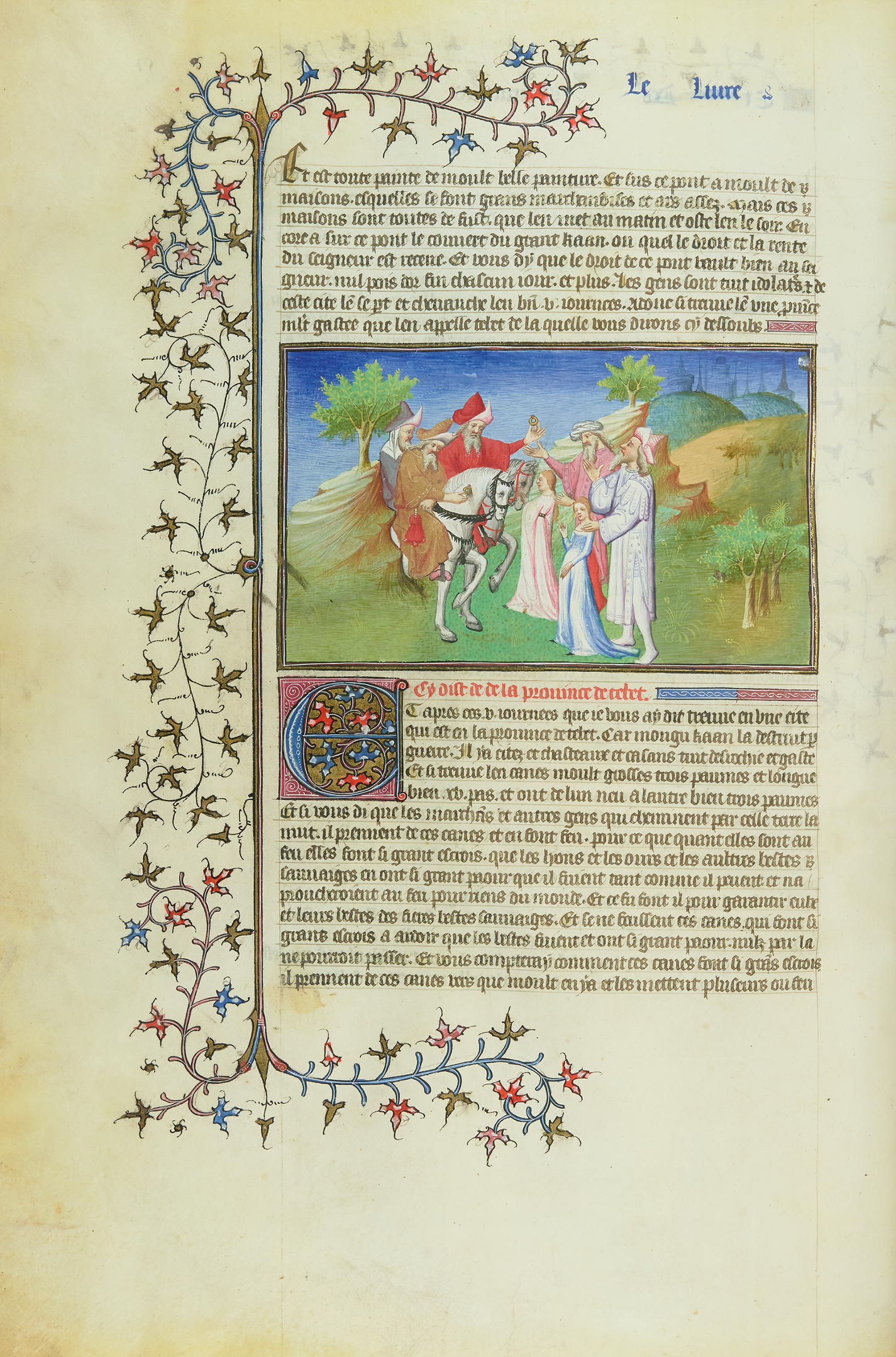For twenty days, one must cross vast deserted lands, where countless wild beasts roam, making the journey extremely dangerous. Travelers head to the riverbanks in search of large, thick bamboos, over three handspans in circumference and about fifteen paces long. They cut them green and burn them at night to stay safe, as when burning, the bamboos split and burst with such loud cracks that the noise can be heard from afar. The explosions are so intense that some have to stuff their ears with cotton.
After overcoming these perils, travelers find several villages at the foot of the mountains.
In one of these provinces, there exists a peculiar custom: men consider it a great act of courtesy and hospitality to offer their wives and daughters to passing strangers, so that they may lie with them. They do so with such goodwill that if a guest were to stay in a house and refuse to sleep with the host?s wife or daughter, the host would feel deeply offended, believing that his woman failed to please the visitor, and would take it as a grave insult.
When the guest arrives, the master of the house calls for his wife, daughter, or sister ? whichever he has ? and orders her to carefully wash the traveler, serve him food and drink, and then fulfill his every desire. The women are said to be very beautiful, kind, and proud to uphold this tradition.
When the traveler departs, he must leave the woman a token: a necklace, a ring, or any other jewel. The more jewels and necklaces a woman possesses, the more respected and honored she is among her people, for it shows that many travelers have sought her and that she has pleased many.
Such is the life of these people and the custom they follow, seeing it neither as sin nor shame, but as an act of courtesy and hospitality towards travelers.
When a woman marries, she offers all the jewels she has received to her husband. And if she becomes pregnant, the child is raised by the man she married and is considered his heir, just like any children born thereafter.
However, once married, a woman is greatly respected, and it is considered abominable for anyone to approach another man?s wife.

For twenty days, one must cross vast deserted lands, where countless wild beasts roam, making the journey extremely dangerous. Travelers head to the riverbanks in search of large, thick bamboos, over three handspans in circumference and about fifteen paces long. They cut them green and burn them at night to stay safe, as when burning, the bamboos split and burst with such loud cracks that the noise can be heard from afar. The explosions are so intense that some have to stuff their ears with cotton.
After overcoming these perils, travelers find several villages at the foot of the mountains.
In one of these provinces, there exists a peculiar custom: men consider it a great act of courtesy and hospitality to offer their wives and daughters to passing strangers, so that they may lie with them. They do so with such goodwill that if a guest were to stay in a house and refuse to sleep with the host?s wife or daughter, the host would feel deeply offended, believing that his woman failed to please the visitor, and would take it as a grave insult.
When the guest arrives, the master of the house calls for his wife, daughter, or sister ? whichever he has ? and orders her to carefully wash the traveler, serve him food and drink, and then fulfill his every desire. The women are said to be very beautiful, kind, and proud to uphold this tradition.
When the traveler departs, he must leave the woman a token: a necklace, a ring, or any other jewel. The more jewels and necklaces a woman possesses, the more respected and honored she is among her people, for it shows that many travelers have sought her and that she has pleased many.
Such is the life of these people and the custom they follow, seeing it neither as sin nor shame, but as an act of courtesy and hospitality towards travelers.
When a woman marries, she offers all the jewels she has received to her husband. And if she becomes pregnant, the child is raised by the man she married and is considered his heir, just like any children born thereafter.
However, once married, a woman is greatly respected, and it is considered abominable for anyone to approach another man?s wife.